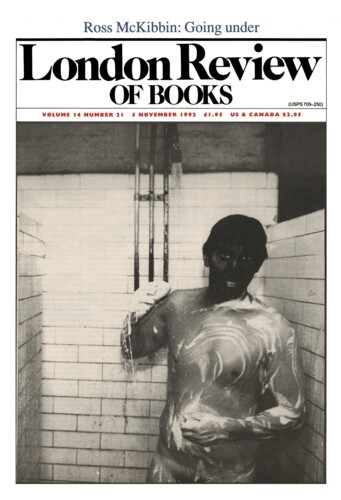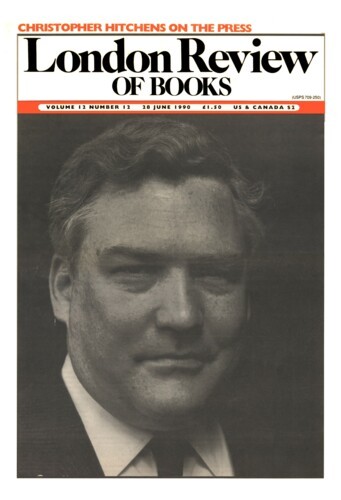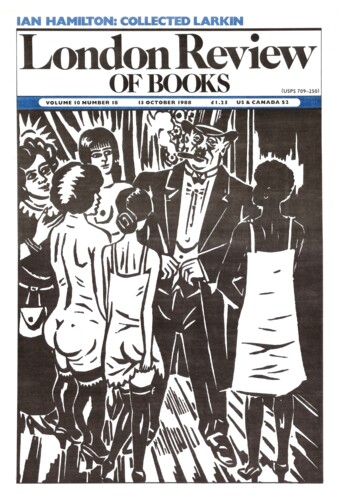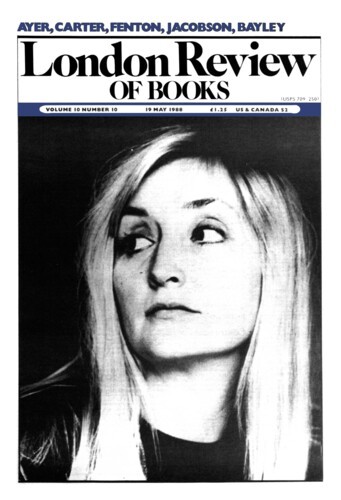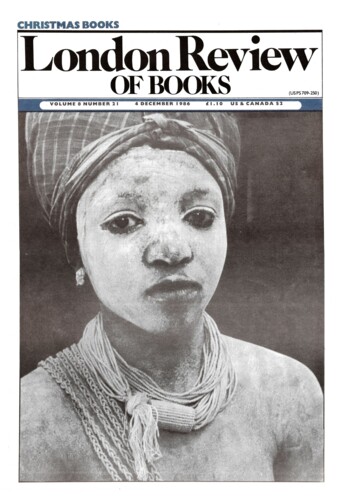Zero Grazing
John Ryle, 5 November 1992
Seventy-four years ago a viral pandemic began in America, most likely on a pig farm in Iowa. Fifteen months later it had killed over eighteen million people, 1 per cent of the world’s population, as many as died in two world wars, almost ten times as many as have died in a decade of Aids. The virus, transmitted by airborne mucus and saliva, spread via coughs and sneezes. In San Francisco and other American cities public health officials warned against all body contact, including shaking hands; ordinances were issued forbidding citizens from appearing in public places without face masks. Possibly because of such measures there were only a few thousand deaths in San Francisco during the first year of the pandemic, but elsewhere, including Europe, the toll was much higher. In Alaska and Central Africa and Oceania entire communities were wiped out. In India, it is estimated, the virus claimed twelve million victims – 4 per cent of the population.
